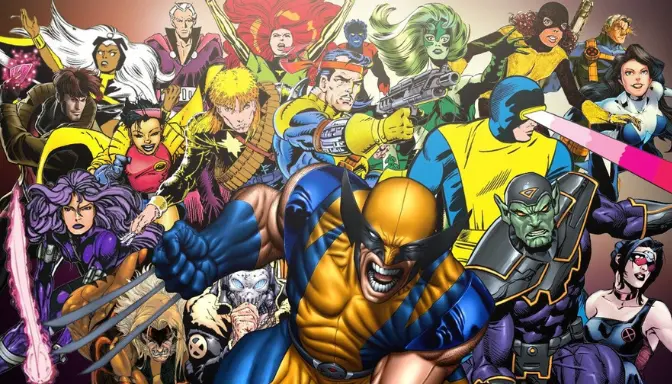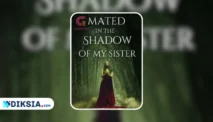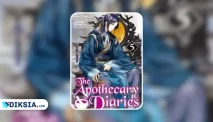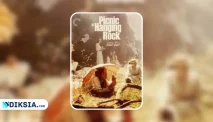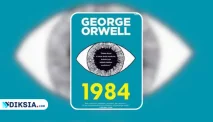Diksia.com - Marvel Comics is one of the most popular and influential publishers of comic books and related media in the world. Among its many iconic creations, the concept of mutants stands out as one of the most original and enduring. Mutants are human beings who possess a genetic trait called the X-gene, which grants them superhuman abilities that manifest at puberty. Mutants are often feared and hated by the rest of humanity, and face various challenges and conflicts as they struggle to find their place in the world.
In this article, we will explore the history and evolution of the mutant concept in Marvel Comics, from its origins in the early 1960s to its current status in the Marvel Cinematic Universe. We will also examine some of the most famous and influential mutant characters and teams, as well as some of the themes and issues that mutants represent in the Marvel Universe.
The Origins of Mutants in Marvel Comics
The concept of mutants as a distinct species of humans with superpowers was first introduced by Marvel writer and editor-in-chief Stan Lee in 1963, as a way to create a large number of superheroes and villains without having to explain their origins individually. Lee was inspired by the science fiction stories of the time, which often featured characters who gained extraordinary abilities from exposure to radiation or other external factors. Lee decided to make these factors innate and hereditary, and thus the idea of mutants was born.
The first mutant superhero team to debut in Marvel Comics was the X-Men, created by Lee and artist Jack Kirby. The X-Men were a group of young mutants who were trained and mentored by Professor Charles Xavier, a powerful telepath and the founder of Xavier’s School for Gifted Youngsters. Xavier’s goal was to teach the X-Men to use their powers for good, and to promote peaceful coexistence between humans and mutants. However, the X-Men also had to face the threat of Magneto, a mutant master of magnetism and the leader of the Brotherhood of Evil Mutants, who believed that mutants were superior to humans and should rule over them.
The X-Men series was initially not very successful, and was canceled after 66 issues in 1970. However, it was revived in 1975 with a new team of international and diverse mutants, such as Storm, Wolverine, Nightcrawler, and Colossus. This new team was created by writer Len Wein and artist Dave Cockrum, and was further developed by writer Chris Claremont and artist John Byrne. The new X-Men series became one of the most popular and acclaimed comic books of the 1970s and 1980s, and introduced many classic stories and characters, such as the Dark Phoenix Saga, the Days of Future Past, and Kitty Pryde.
The success of the X-Men also led to the creation of several spin-off and related mutant titles, such as The New Mutants, X-Factor, Excalibur, X-Force, and Generation X. These titles expanded the scope and diversity of the mutant concept, and explored different aspects and perspectives of the mutant experience. Some of the themes and issues that mutants dealt with included identity, prejudice, discrimination, oppression, rebellion, family, friendship, love, and destiny.
The Evolution of Mutants in Marvel Comics
Over the years, the concept of mutants in Marvel Comics has undergone several changes and developments, both in terms of the number and nature of mutants, and their role and status in the Marvel Universe. Some of the major events and factors that influenced the evolution of mutants include:
- The Mutant Massacre: In 1986, a group of mutant assassins called the Marauders attacked and slaughtered the Morlocks, a community of outcast and deformed mutants who lived in the sewers of New York. This event marked the beginning of a darker and more violent era for mutants, and also resulted in the death or injury of several X-Men and their allies.
- The Inferno: In 1989, a demonic invasion of New York, orchestrated by the mutant sorceress Madelyne Pryor, the clone of Jean Grey, caused widespread chaos and destruction. This event also revealed the existence of the X-Men and other mutants to the public, and increased the fear and hatred towards them.
- The X-Tinction Agenda: In 1990, the X-Men and their allies were kidnapped and enslaved by the Genoshan government, a fictional African nation that exploited mutants as a source of cheap labor and military power. This event exposed the atrocities and injustices that mutants faced in some parts of the world, and also sparked a rebellion and a revolution among the oppressed mutants.
- The Age of Apocalypse: In 1995, a time-traveling mutant named Legion attempted to kill Magneto in the past, but accidentally killed his own father, Professor X, instead. This created an alternate timeline where Apocalypse, a powerful and ancient mutant, conquered the world and ruled it with an iron fist. In this dystopian reality, mutants were divided into two factions: the loyal followers of Apocalypse, and the resistance led by Magneto. This event showed a possible future where mutants were the dominant and oppressive force, and also highlighted the importance and influence of Professor X and Magneto in the mutant history.
- The House of M: In 2005, the Scarlet Witch, a mutant with reality-warping powers and the daughter of Magneto, suffered a mental breakdown and altered the world into a utopia where mutants were the majority and humans were the minority. However, this illusion was eventually shattered by the combined efforts of the Avengers and the X-Men, and the Scarlet Witch uttered the words “No more mutants”, which depowered most of the mutant population, leaving only a few hundred mutants with their abilities. This event drastically reduced the number and significance of mutants in the Marvel Universe, and also created a sense of desperation and survival among the remaining mutants.
- The Messiah Complex: In 2007, the first mutant birth since the House of M occurred, and the baby girl was named Hope. She was seen as the potential savior or destroyer of the mutant race, and became the target of various factions who wanted to protect or exploit her. This event sparked a series of conflicts and wars among the mutants, and also introduced a new generation of mutant heroes and villains.
- The Avengers vs. X-Men: In 2012, the Phoenix Force, a cosmic entity of immense power and destruction, returned to Earth and sought to possess Hope, who was believed to be its destined host. This caused a clash between the Avengers, who wanted to prevent the Phoenix from reaching Hope, and the X-Men, who wanted to use the Phoenix to restore the mutant race. This event resulted in the death of several prominent characters, such as Professor X and Cyclops, and also reignited the mutant population, as the Phoenix dispersed its energy across the world and activated the X-gene in many dormant mutants.
- The Dawn of X: In 2019, the X-Men and other mutants established a sovereign nation on the living island of Krakoa, and declared themselves as a separate and independent species from humans. They also developed various technologies and medicines that enhanced their powers and extended their lifespans, and offered them to the rest of the world in exchange for diplomatic recognition and immunity. This event marked a radical and revolutionary change in the status and role of mutants in the Marvel Universe, and also created new challenges and opportunities for them.
The Mutants in the Marvel Cinematic Universe
The Marvel Cinematic Universe (MCU) is a media franchise and shared universe that features various films and television shows based on the characters and stories of Marvel Comics. The MCU is one of the most successful and influential franchises in the history of entertainment, and has introduced millions of fans to the Marvel Universe and its heroes and villains.
However, due to the complex and controversial legal and contractual issues, the concept of mutants and the characters associated with it, such as the X-Men and the Fantastic Four, were not part of the MCU for a long time. Instead, they were owned and produced by another studio, 20th Century Fox, which created its own separate and distinct film series based on the mutant concept. The Fox X-Men film series began in 2000 and ended in 2020, and consisted of 13 films that featured various iterations and adaptations of the mutant characters and stories.
In 2019, Disney, the parent company of Marvel Studios, acquired Fox and its assets, including the rights to the mutant concept and characters. This opened the possibility and the potential for the mutants to be integrated and incorporated into the MCU, and to interact and crossover with the existing and established MCU characters and stories. However, the details and the plans for this integration have not been officially announced or confirmed yet, and are still subject to speculation and anticipation.
Nevertheless, there have been some hints and clues that suggest the existence and the introduction of mutants in the MCU, such as:
- The Eternals: The Eternals are a race of immortal and powerful beings who were created by the Celestials, a group of cosmic entities who also experimented on early humans and gave them the potential to develop superpowers. The Eternals are set to appear in their own film in 2021, which will explore their history and their connection to the origins of the Marvel Universe. It is possible that the Eternals film will also reveal or imply the existence of the X-gene and the mutants, as a result of the Celestials’ experiments.
- WandaVision: WandaVision is a television series that premiered in 2021, and focuses on the characters of Wanda Maxwell, a mutant with the power to manipulate probability and reality. He was also the son of Wanda and Vision, and the twin brother of Thomas, who had similar powers. Maxwell was kidnapped and brainwashed by a mysterious organization, who wanted to use him as a weapon against the Avengers and the X-Men. Wanda and Vision, along with their allies, tried to rescue Maxwell and stop the organization’s plans.
- The Falcon and the Winter Soldier: The Falcon and the Winter Soldier is a television series that premiered in 2021, and follows the adventures of Sam Wilson and Bucky Barnes, who inherited the mantle and the legacy of Captain America from Steve Rogers. The series also introduces the Flag Smashers, a group of radical activists who oppose the reestablishment of national borders after the Blip, the event that brought back half of the population who were erased by Thanos. The Flag Smashers are enhanced by a variant of the Super Soldier Serum, which was originally derived from the blood of a mutant, Isaiah Bradley, who was experimented on by the US government in the 1950s.
- The Multiverse of Madness: The Multiverse of Madness is a film that is scheduled to be released in 2022, and features the characters of Doctor Strange and Wanda Maximoff, who will explore the concept and the consequences of the multiverse, the collection of alternate realities that exist beyond the main MCU timeline. The film will also feature the appearance of America Chavez, a young superhero who has the ability to travel between dimensions. It is possible that the Multiverse of Madness will introduce or reference the existence of mutants in other universes, and potentially bring them to the main MCU timeline.
The Future of Mutants in Marvel Comics and the MCU
The concept of mutants in Marvel Comics and the MCU is one of the most fascinating and complex aspects of the Marvel Universe, and has a lot of potential and possibilities for the future. Some of the questions and speculations that fans have about the future of mutants include:
- How will the mutants be introduced and integrated into the MCU? Will they be retconned as having existed all along, or will they be created or brought by some external event or factor, such as the Eternals, the Scarlet Witch, the Multiverse, or the Celestials?
- Which mutant characters and teams will appear in the MCU? Will they be faithful to their comic book counterparts, or will they be adapted or modified to fit the MCU’s tone and style? Will they be played by the same actors who portrayed them in the Fox X-Men films, or will they be recast with new actors?
- How will the mutants interact and crossover with the existing and established MCU characters and stories? Will they be allies or enemies, friends or rivals, partners or competitors? Will they have their own separate and independent films and shows, or will they be integrated and incorporated into the Avengers and other MCU franchises?
- How will the mutants deal with the challenges and issues that they face in the MCU? Will they face the same or similar problems that they faced in the comics, such as prejudice, discrimination, oppression, persecution, and genocide? Or will they face new and different problems that are unique to the MCU, such as the Sokovia Accords, the Blip, the Infinity Stones, or the emergence of new threats and enemies?
- How will the mutants evolve and develop in the MCU? Will they follow the same or similar paths that they followed in the comics, such as the X-Men, the Brotherhood, the X-Force, the New Mutants, the Exiles, or the X-Men? Or will they follow new and different paths that are unique to the MCU, such as the Young Avengers, the Champions, the Ultimates, or the Illuminati?
These are some of the questions and speculations that fans have about the future of mutants in Marvel Comics and the MCU, and they will likely be answered and addressed in the upcoming films and shows that will feature and explore the mutant concept and characters. The concept of mutants in Marvel Comics and the MCU is one of the most original and enduring creations of Marvel, and has a lot of potential and possibilities for the future.
Mutants are not only superheroes, but also symbols and metaphors for various themes and issues that are relevant and relatable to the real world, such as diversity, identity, acceptance, and coexistence. Mutants are also a source of inspiration and entertainment for millions of fans around the world, who enjoy and appreciate their stories and characters. Mutants are, in essence, the evolution of a superhero concept.
